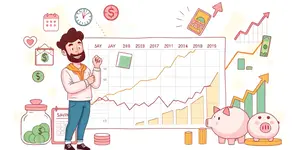
In today’s fast-paced world, mastering personal finance is more important than ever. From managing debt to planning for retirement, comprehensive financial knowledge fuels confidence and long-term success.
Online workshops have emerged as a flexible and engaging way to enhance financial literacy. Whether you’re a beginner or looking to refine advanced strategies, virtual sessions offer tailored content designed to meet diverse needs.
In this article, we’ll explore the essentials of financial planning, uncover the benefits of online workshops, highlight key tools, discuss ethical considerations, and guide you in crafting your own action plan.
Financial literacy forms the bedrock of sound money management. It encompasses understanding budgeting, credit management, savings, investments, and retirement planning. With this knowledge, individuals can make informed decisions that align with their goals.
At its core, financial literacy empowers you to:
By building a strong foundation, you create a roadmap that guides every monetary choice, reducing stress and fostering resilience against unexpected challenges.
Online workshops deliver powerful advantages over traditional in-person sessions. Their greatest strength lies in accessibility: participants can join from anywhere with a stable internet connection.
Moreover, a blend of live webinars, pre-recorded videos, and downloadable resources ensures learning styles of all kinds are catered to effectively.
Leveraging the right tools can dramatically enhance your learning experience and practical application of financial concepts. Key resources include mobile apps, AI-driven advisors, and microcredential programs.
Additionally, downloadable calculators for net worth, retirement needs, and debt payoff schedules can be invaluable for hands-on planning exercises during workshops.
Effective online workshops are meticulously structured to maximize engagement and retention. Key elements include interaction, concise timeframes, and focused participant numbers.
By combining these strategies, facilitators create an immersive learning environment that promotes collaboration and sustained motivation.
Protecting participant data and maintaining ethical standards are paramount in any financial education program. Workshops must adhere to data privacy regulations and offer unbiased advice.
Key considerations include:
By upholding these practices, providers foster a trustworthy environment where learners feel confident sharing sensitive information and implementing recommendations.
Completing a workshop is just the beginning. To translate knowledge into action, develop a personalized plan with clear milestones and accountability mechanisms.
Follow these steps to build your plan:
By embedding structure and accountability into your personal strategy, you’ll move steadily towards financial freedom and peace of mind.
Online workshops represent a transformative pathway to boost your financial planning skills and secure a resilient future. Through a blend of expert-led sessions, interactive exercises, and cutting-edge tools, you can cultivate the expertise needed to navigate complex financial landscapes.
Embrace these opportunities with commitment and curiosity. Craft your action plan, engage with peers, and lean on technology for personalized support. With dedication, your journey to financial mastery will not only improve your own life but inspire others to follow in your footsteps.
References













